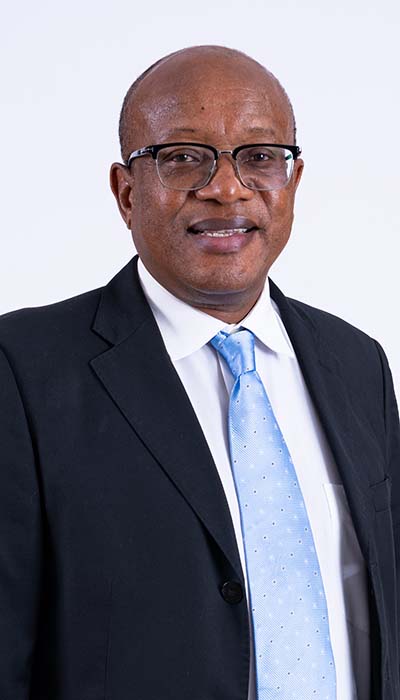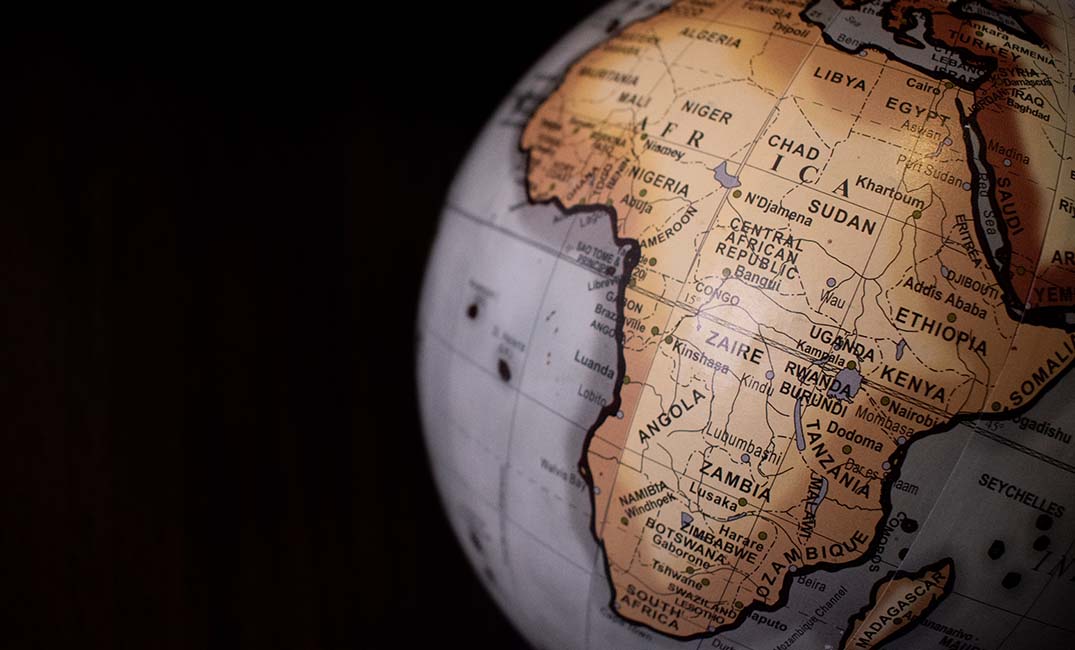Kathy Gibson reports – Generative artificial intelligence (GenAI) is seen as one of the top opportunities and risks for businesses in Africa.

Ignatius Sehoole
This is one of the headline findings of the inaugural KPMG Africa CEO Outlook, which finds that GenAI is seen as a useful tool in running their businesses – but CEOs are cognisant of the risks that accompany this powerful new technology tool.
These threats include the obvious ones of cybersecurity, but also less obvious threats like talent replacement and figuring out how GenAI can complement human workers.
While 61% of companies recognise the benefits associated with GenAI, 39% still haven’t figured out how to benefit from the technology.
“But this train has left the station,” says Ignatius Sehoole, chairman and CEO of KPMG in Africa, explaining that companies need to figure out how to embrace AI and GenAI in their businesses.
At the same time, CEOs recognise the cybersecurity threat, but just 21% of the are confident in their ability to guard against it.
Overall, African CEOs are slightly less confident about business, with escalating uncertainty and rising global crises top on mind, but they are still upbeat about the future of the global economy.
Global considerations have forced a reset in strategic thinking, a consolidation of talent, a renewed focus on collaborative approaches as well as an eye on upcoming technology and geopolitics.
Sehoole comments: “It is an exciting time in the history of the African continent to release these results that collectively look at how we, as African colleagues, can together address the key impacts of the global and local economies to gear our businesses for growth.
“The whole is very much the sum of the parts and so reviewing CEO outlooks from a continental perspective is critical as we tackle global challenges and economic impacts on local African soil, with African-based solutions.”
Despite a backdrop of global economic uncertainties, and varying economic landscapes across the three regions, CEOs remain confident in the growth aspects of their organisations.
In East Africa, the projections indicate a 5,1% expansion in 2024 with CEOs likely to take a more cautious approach when pursuing M&A, due to prevailing factors such as economic volatility and currency risk. Only 26% of CEOs expect growth through M&A because of the existing economic conditions.
West Africa’s economic outlook in 2024 reflects cautious optimism among CEOs, with 60% confident in their country’s economic growth down from 73% last year. Key risks include trade regulation, operational issues, and rising cybercrime.
CEOs are focusing on agility, resilience, and embracing technology, especially generative AI, to navigate challenges. Improving customer experience and hedging against inflation are top priorities, along with talent retention.
Similarly, in the southern Africa region, CEOs have expressed confidence in business growth in several areas. The CEOs are most concerned about the impact of economic decoupling between countries which may lead to pricing pressures over the next three years, followed by cyber security and emerging or disruptive technologies.
“This confidence and prospects for business is refreshing, especially considering that local CEO confidence in the global economy has waned in 2024, reflecting the growing complexities of the environment they face – down to 52% compared to 2023’s 70% confidence levels,” says Frank Blackmore, lead economist at KPMG in Southern Africa.
Geopolitics
The world is fragmenting from a geopolitical point of view- we don’t know what the new world order will look like, says Stefano Moritsch, KPMG’s global geopolitics lead. “We also have dramatic interdependencies after decades of globalisation.”
As a result, CEOs, around the world and in Africa, have to wrestle with an environment of polycrisis. “They need to be technologists, to understand where to invest, and they also need to become geopolitical experts.”
So it’s no surprise that 42% of African CEOs says geopolitical complexities have to be tackled. Its lower than the rest of the world – at 47% – which Moritsch puts down to African resilience.
But the geopolitical recession is upon us, he says. There are more conflicts around the world than we have seen for decardes, at a cost estimated at moe than 5% of global GDP, and the refugee crisis is growing.
“But every geopolitical risk hides an opportunity, and Africa could become a pivotal player in geopolitical affairs.”
Geopolitical competition remains broadly inflationary with the ability to disrupt supply chains and trade investments because it shifts the focus of investment from efficiency to resilience.
“Geopolitical tensions have caused global economic volatility, disrupted trade and energy markets and driven major supply chain headaches for CEOs putting pressure on inflation, food, and energy insecurity across the world. In addition, it has also increased regulatory uncertainty making it complex, costly, and inconsistent, and leaving room for significant hurdles for firms,” says Moritsch.
The current situation, “is not all negative as shifting geopolitics offer opportunities for those who can stay ahead of the geopolitical game and leverage it to foster significant growth. Proactively adopting new corporate approaches to understand and manage the complex interplay of geopolitics, operational issues, cybersecurity, and supply chain risks will be key to leveraging such opportunities and addressing the challenges posed by geopolitical tensions.
“In doing so, CEOs can build more resilient and adaptive organisations capable of thriving in an uncertain world. This necessitates proactive measures to maintain operational resilience and continuity,” Moritsch adds.
It is evident that growth is a key priority all around the world and buffering businesses from any impact to growth ambitions is where the focus should lie. This will align with a conservative but intentional strategic drive to sustainable growth.
Innovation and technology
CEOs are looking at where they can employ GenAI to create their own niche, to increase their competitiveness, says Martin Kimani, associate director at KPMG in Africa.
In 2024, the prominence of generative AI is positioned and geared as one of the top priorities to get right as a cutting-edge investment by CEOs.
For many CEOs across Africa, ensuring AI is implemented ethically is a priority, with 77% of the CEOs highlighting ethical dilemmas as some of the toughest challenges in adopting AI within their organisations.
With the approach and readiness to implement AI in the workplace, a significant 73% of CEOs think their leadership team understands how generative AI will shake up existing business models providing opportunities for a competitive edge in their organisations.
Accordingly, a vast majority of CEOs hold diverse opinions about the readiness for actively deploying generative AI, with 81% of CEOs in Africa believing that generative AI does not pose a major risk for headcount but necessitates upskilling and resource allocation to the workforce.
In addition, the next three years offer a clear use of generative AI across the value chain, with 78% of Africa’s CEOs recognising its potential in the ICT function, significantly higher than the global CEOs at 68%.
As GenAI evolves, cybersecurity and preparedness strategies are an additional ongoing concern, which may pose a challenge in the efforts and adoption of generative AI. In fact, 43% of Africa’s CEOs believe they have access to adequate cybersecurity talent and solutions to combat AI- specific threats, compared to 50% worldwide.
“AI models have the potential to transform businesses and everyday life profoundly,” says Kimani. “The state of readiness in organisations for impending cyberattacks is low which has prompted the act to work together to bridge the skills and cultural gap seen in many of these organisations.
“Fostering a cybersecurity-centric culture is crucial to how AI is incorporated into these businesses. We need to ensure this technology is applied safely and securely.”
Kimani concludes that the majority of companies are still struggling with cybersecurity, and trust in their own systems, and AI is compounding the issues. But 70% of CEOs are willing to invest to plug the gaps.
Talent and the evolving workforce
Talent still features as one of the top five threats for CEOs in Africa. “CEOs are kept awake worrying about whether they have the right talent on the ground,” says Dr Candice Hartley, head of people at KPMG in Africa.
CEOs are prioritising technology investments above talent, but skills development is vital in delivering in services.
They are saying the talent development is not so much tied up in training and education, but that peer learning – in the office – is more important, with institution knowledge passed on.
At the same time, Covid gave us the opportunity orevist ways of work, and makde the adoption of technology a key staple.
“But in 2024, 86% of CEOs are saying employees must come back to work,” says Dr Hartley. This finding is in line with global CEOs, where the number has increased significantly in the past 12 months from 64 to 83%. Interestingly, flexibility as an employee value proposition is an important factor that cannot be ignored.
“But we have accept that the nature of work has changed,” she adds. “With 89% of African CEOs highlighting the impact of an aging workforce, it is critical that the younger talent pool is nurtured and developed to minimise the negative impact this could have on the sustainability of organisations.”
In Africa, CEOs are focused rather on attracting needed talent, while retaining and developing this talent.
“CEOs are grappling with what the value proposition is, for current and future work.”
Diversity is also seen as key and crtitical. In Africa, there is a still a gender gap which we need to not only close bur rebalance skills in the context of transformation.
The latest research highlights diversity in the workplace and also in the senior management echelons, Dr Hartley says.
“In Africa, it is time for African talent. to take its place in the global economy. We need to not only develop African talent, but deploy it across Africa.”
She believes the adoption of AI in the continent is vital, with Africa’s young population ready to adopt it.
ESG strategies
There is an increased awareness about the risks as well as the value associated with environmental, social, and governance (ESG) compliance.
But African leaders still lag in their views about ESG, says Pieter Scholtz, KPMG in Africa lead for ESG.
At a global level, there is a higher recognition amongst CEOs of the imperative role that environmental, social, and governance (ESG) plays in customer relationships and positive brand association when compared to African CEOs.
The African CEOs believe their ESG strategies, misinformation, and reputational risk can adversely affect their business. These views varied across the three regions with the CEOs in East Africa agreeing the most.
“The different economic, social, and environmental landscapes in the three regions seem to have a significant impact on how CEOs in these regions think about ESG reporting, the risk of natural disasters on their businesses, and the impact of the social licence to operate on their businesses,” says Scholtz.
Even though there are many differences in thinking, the one thing that is consistent between all regions in Africa, and across the globe, is that ESG will be one of the biggest value creators for corporates in the coming decade, especially where it is effectively integrated with companies’ digital transformations and their communication strategies.”
Furthermore, African CEOs are not as convinced in comparison to their global counterparts that their organisations will meet their 2030 Net Zero commitments. The difference is sizable: with 51% of the global view whilst, Africa is at 32%, with CEOs citing several barriers including, but not limited to, lack of technology, skills, internal governance, and complexity of decarbonising supply chains as the highest at 22%.
The 10th edition of the KPMG CEO Outlook polled 1 325 CEOs, including 130 in Africa.

